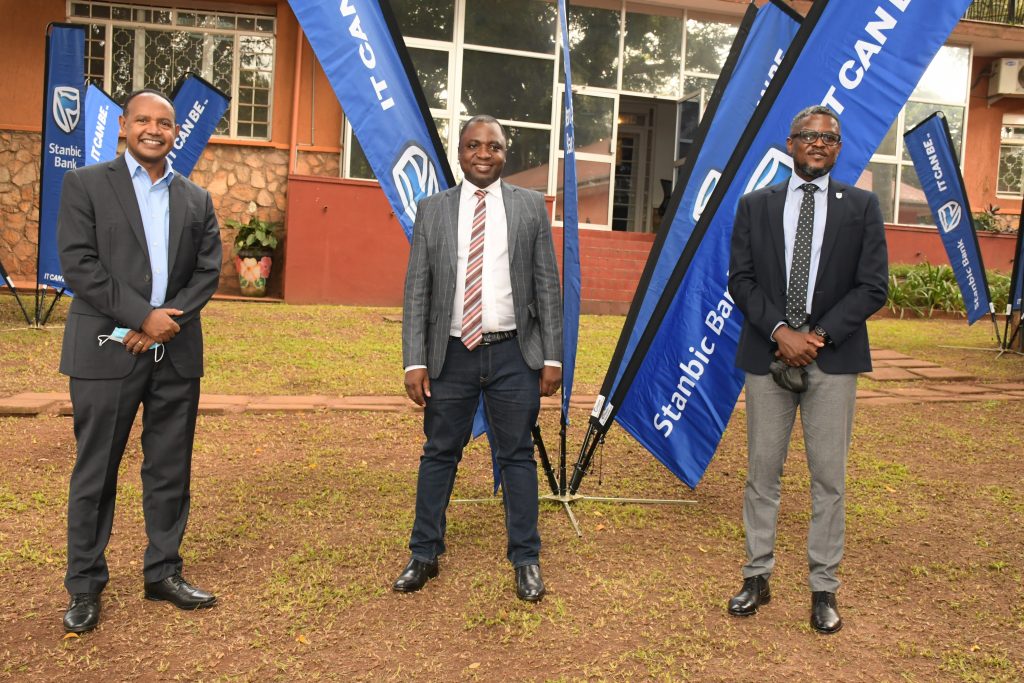
The Stanbic Business Incubator has awarded 352 SME’s with certificates in enterprise development program after a three-month completion of the training session in business management, capacity building and upskilling programmes.
Uganda ranked as a top entrepreneurial country in the world with over 160,000 small and medium enterprises (SMEs) that account for 90% of the entire private sector. This sector also employs over 2.5 million people and contributes 20% of GDP and yet 80% of the SMEs do not make it to their second or third birthday.
In 2018, Stanbic Bank took on the responsibility to address this challenge by setting up the Stanbic Business Incubator in Kampala. The training is intended to support SMEs to become more sustainable and help scale up their operations in a professional manner. By close of 2020, the Incubator had trained a total of 1,216 SMEs and 2,392 individuals to date.
Speaking at the graduation ceremony held at Kololo Emma Mugisha, Executive Director & Head, Corporate and Investment Banking at Stanbic Bank said, “We are pleased to be hosting the fifth graduation ceremony for our Business Incubator. For close to three years now, it has been instrumental in enhancing the capacity for thousands of SMEs. Our resent research shows improvements in productivity and revenue gains for the SMEs that have completed this training. This positive change is contributing towards the growth and improved performance of SMEs across the country and as Stanbic we are proud to lead this journey.”
The 2020 training was mainly done through a Learning Management System and Zoom. The sessions were blended with self-study for enhanced and more effective learning through content shared on a customized learning platform.
Tony Otoa, Chief Executive of Stanbic Business Incubator said, “We are committed to supporting the SMEs by imparting skills ranging from compliance, corporate governance and business planning and analysis to financial literacy and business ethics among other things. To support continued learning during the Covid-19 pandemic, we decided to take the training online. This enabled us to deliver at the district level as well.
At the regional level we were able to train in 10 districts across the three major regions of the country. A total of 216 micro small and medium enterprises benefited from the Business Development Services and coaching support.”
He added, “For continued support of the programme, we partnered with the bank and CCX to develop a Covid-19 information hub where SMEs can access information on how to steer their business through the pandemic, training and funding opportunities.”

after the Stanbic Business Incubator graduation ceremony in Kololo.
Michael R. Senteza of DrimO Investments, a graduate of the program, said the training has not only enlightened him but also redirected his management skills, opened up new opportunities and ventures for his business to expand and reach great heights.
“With the new outlook and refreshed perspective, we see our business developing strategic partnerships and establishment of a strong and sustainable brand that can weather the storms of economic uncertainty through professional structures, planning and compliance” Senteza explained.
Lorna Nsiima of Capital Law Partners and Advocates, another Incubate added; “The Incubator provides an environment where business owners get to learn vital and practical requirements for a business to survive and thrive, not only in Uganda, but in the wider regional and global economies. As a manager, I now have more clarity in regard to our company structure and goals.”
The graduates of the Stanbic Business Incubator entailed a wide range of SMEs in various sectors like construction, transport, logistics, renewable energy, hospitality, agribusiness and manufacturing and consumer goods and services.
